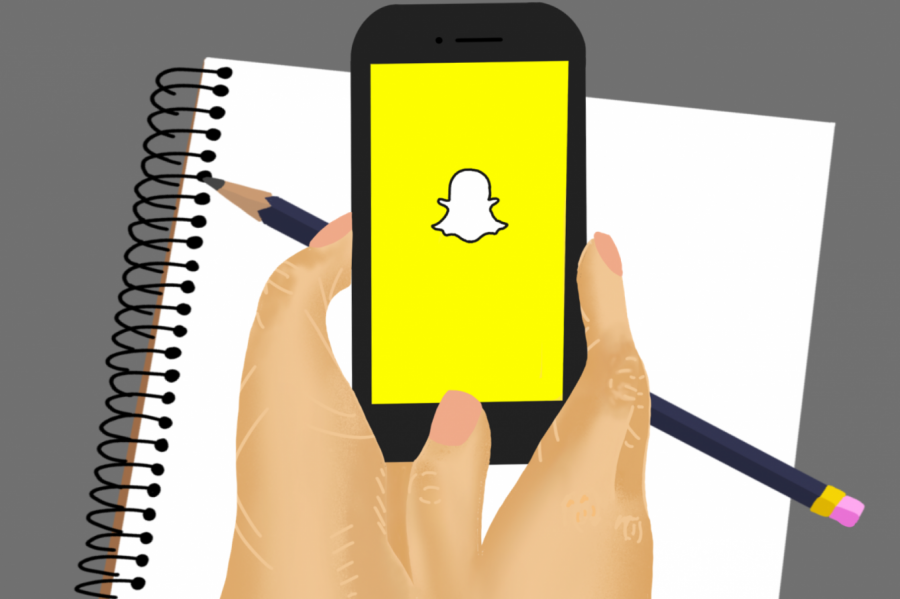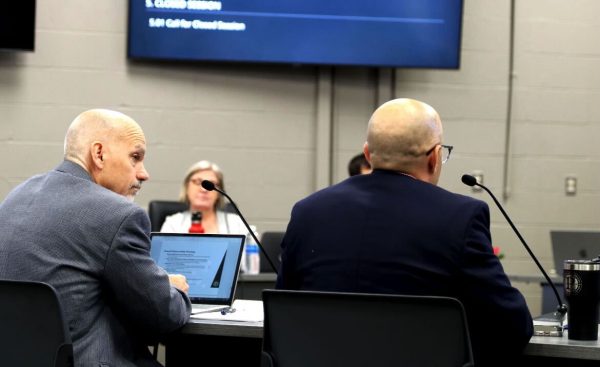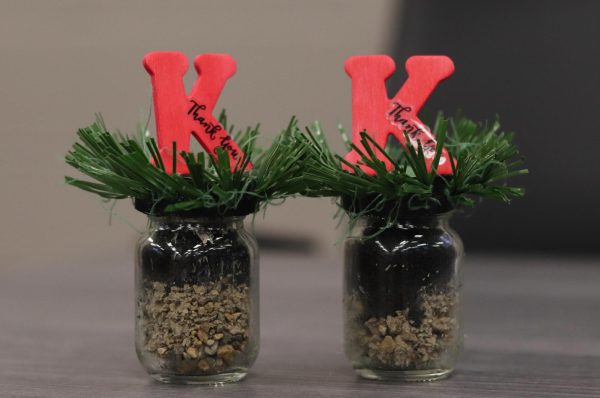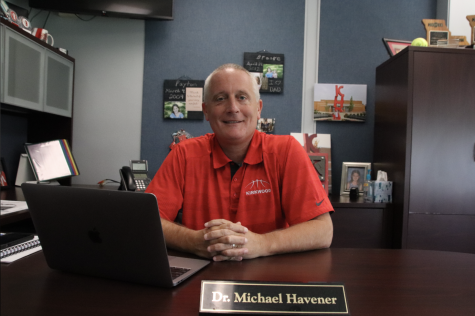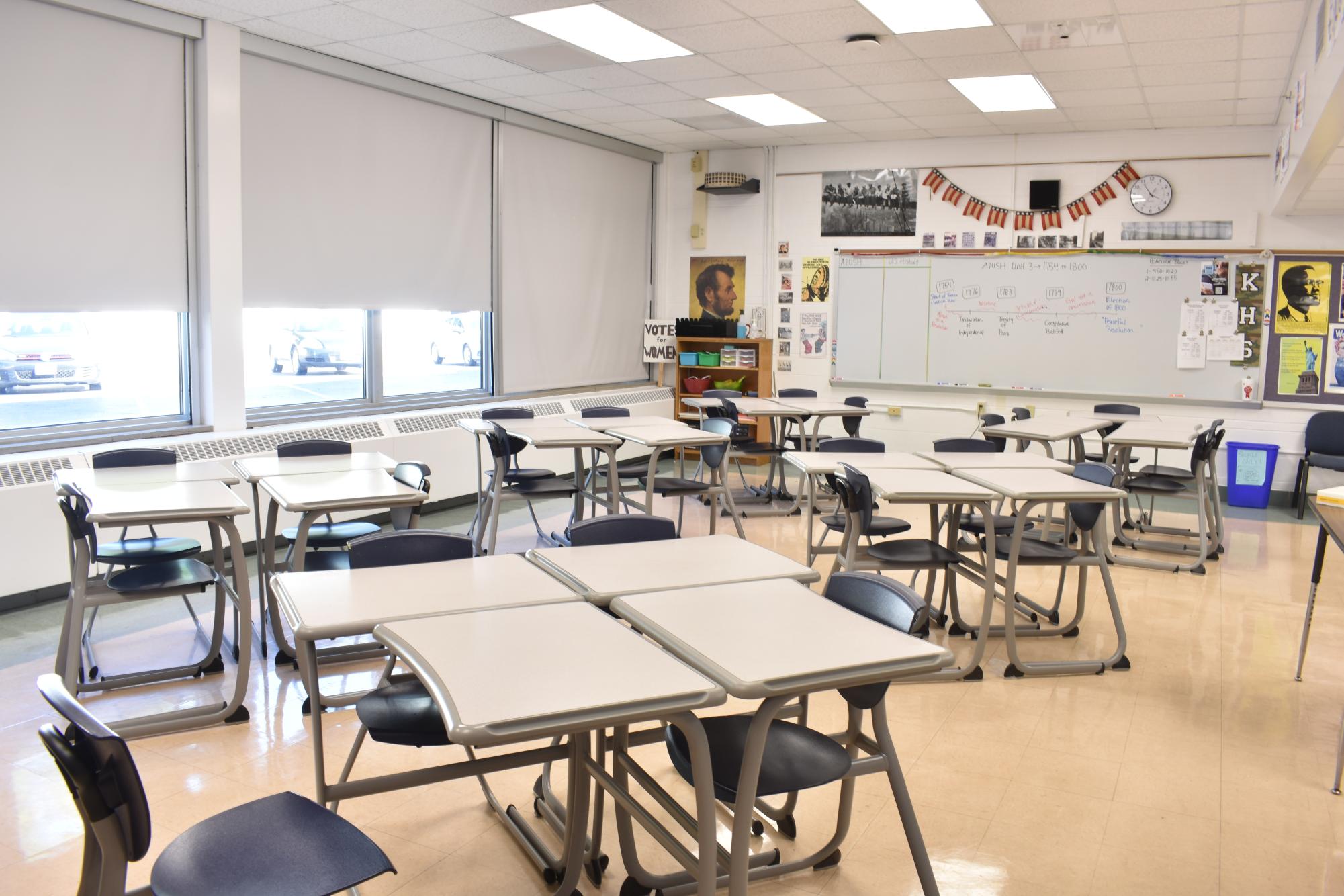Screens on: KHS cell phone policy
Students must hold themselves accountable to use their phones appropriately.
Over the past couple of years, addressing the role of cell-phones in the classroom has had increasing importance for school districts, state and national education departments worldwide. In San Mateo, Calif., the 2019-20 school year will inaugurate San Mateo High School’s phone-free policy. In Victoria, Australia, students throughout the state will not be allowed to use their phones in school starting with the 2020-21 school year. In France, phone usage in schools is banned for students, ending in the ninth grade. Although school cell-phone policies are rapidly changing worldwide, according to Dr. Michael Havener, KHS principal, there are no imminent protocol changes at KHS.
“Right now, the general rule at KHS is that students can have phones,” Havener said. “More specifically, every teacher can have their own personal cell phone policy inside their classroom. My philosophy is that I want to treat individuals as young adults, so my expectation is that they know when and where is the appropriate time to use their cell phone.”
Maintaining the responsibility of deciding when to use their phones is something that students, such as Will Arbanas, junior, believes has benefits. According to Arbanas, allowing teachers to create their own policies is more beneficial to students than school-wide phone limitations would be.
“Some teachers are more lenient than others, and if they don’t mind you using your phone [then] there shouldn’t be an overarching rule preventing you from doing so,” Arbanas said. “It is the teacher’s policy if [students] are allowed to use [phones] and also the student’s responsibility to get a good grade in the class, so it’s important that you make a conscious decision whether or not you’re on your phone.”
Since teachers have the ultimate policy-making power, many teachers have sought ways to incentivize students to stay off their phones. Some teachers, such as Lisa Shinabargar, social studies teacher, utilize apps that prevent students from using their phones.
“[To combat phone usage] I try to really explain why I feel the way I do about phones, and why I think they’re detrimental, [but] I’m [also] using an app called ‘Pocket Points’ this year,” Shinabargar said. “[Pocket Points] rewards kids for not touching their phones when they’re in my class, and [so far] I’ve had kids sign up and actually use it, and I feel like I’ve had [fewer] kids actually on their phones so far this year.”
A Harvard study on technology found that cell-phones and laptops may be distracting for some students in the classroom, however, these devices have also been beneficial to learning and central components of our lives. According to Havener, the KHS cell-phone policy is meant to prepare students to appropriately deal with the reality that smartphones are with us at all times.
“[Having cell phones at school prepares students] not only for college, but in life,” Havener said. “In a meeting at work, you’re not supposed to be on your cell phone — you’re supposed to be paying attention. No matter what the next step is outside of KHS, hopefully [we’re] preparing you for the real-world out there.”
Your donation will support the student journalists of Kirkwood High School. Your contribution will allow us to purchase equipment and cover our annual website hosting costs.

he/him
Favorite musical artist: Polo G
Favorite quote: "Vivere memento."
Favorite Pantone shade:

Interests: Taking my dog for walks.
Favorite musical artist: The Neighbourhood.
Favorite quote: "I'm no hero. I put my bra on one boob at a time,...


